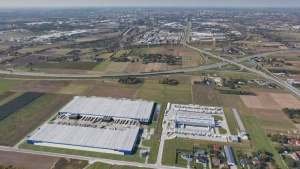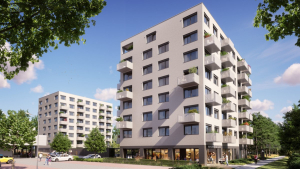
Despite almost all European office employees working from home last year the empty workplaces did not lead to a reduction in the expenditure that companies had to fulfil had the workforce been in the office. The average costs per FTE fell by only 2% and amounted to €9,468. These findings have been published by Colliers, Occupier Cost Index (OCI), which comprises data from 29 countries, 3,990 buildings, 26.1 million square meters of office space and 1.96 million FTEs.
The importance of facility management and the utilisation of office space became the subject of discussion during the COVID-19 pandemic. "The working environment was adapted to the new situation through minor alterations, but larger investments into building design and the working environment were postponed until the utilisation of the office environment was better understood post-pandemic," said co-author of the report, Denise Hoogendoorn, Head of FM Consultancy in the Netherlands at Colliers.
As a consequence of the pandemic, office services were modified to reflect the low occupancy rate, but some existing contracts were not possible to alter, such as a company restaurant, according to Hoogendoorn, "Only variable costs such as meeting services were discontinued, but this outlay was partly replaced by the higher costs incurred for the establishment of home workplaces or extra cleaning of the office. This demonstrates the inflexibility of some facility management contracts."
Bulgaria remains the cheapest country
As in previous years, Bulgaria is by far the cheapest country in Europe for someone to work full-time. Bulgaria has the lowest rents and labour costs of any country, bringing corporate spending to just €2,689 per FTE. Croatia is second on the list of most economical countries. Here companies spend €4,037 per FTE on office costs. Hungary completes the top three with €4,162 per FTE. Overall labour costs in Eastern Europe have been rising for several years.
Switzerland most expensive country
Switzerland is the most expensive country in Europe and has even increased its cost per FTE from its nearest competitors of Norway and Sweden. Costs rose by 2% last year to €18,713 per FTE. Costs in Norway decreased by 7% to €16,645 per FTE. Costs in Sweden also fell by 5% to €16,231 per FTE. Poland also recorded a decrease of 5% to €5,019.
“The savings on the Polish market were not significant, but compared to other European countries they seem quite large. Several factors contribute to this. First, some companies have been able to obtain small rent reductions from building owners in their current leases. Expenses have also been cut for various services provided to employees – fruit, team building events, vending machines, etc. As a result of lower occupancy rates in offices, the consumption of office supplies also decreased, and all of these savings were compounded by objective factors, such as globally felt problems with obtaining electronic equipment, which postponed, for example, major expenses associated with the replacement of computers for employees,” says Przemysław Błaszkiewicz, Senior Associate, Office Agency, Colliers in Poland.
Nicholas Marsh, Head of Enterprise FM Advisory for Occupier Services in EMEA at Colliers, added, “Our research has highlighted that most corporates had to sustain expenditure in property and operating costs, despite buildings being empty during the lockdowns across Europe. Whilst we all recognised the opportunity to rationalise property portfolios to reflect new hybrid working and lower occupancy levels, the reality is that existing lease structures prevent short-term portfolio adjustments. This is highlighted by only a 1% decrease in occupancy costs per full-time employee in the UK. Looking forward property strategies will leverage the value of reduced space, flex space and co-working environments – all of which will be reflected in our forthcoming OCI data.”
In the Occupier Cost Index, all office costs are compared on the European facility standard EN 15221. This standard has four categories: building & infrastructure, people & organisation, ICT and management.



